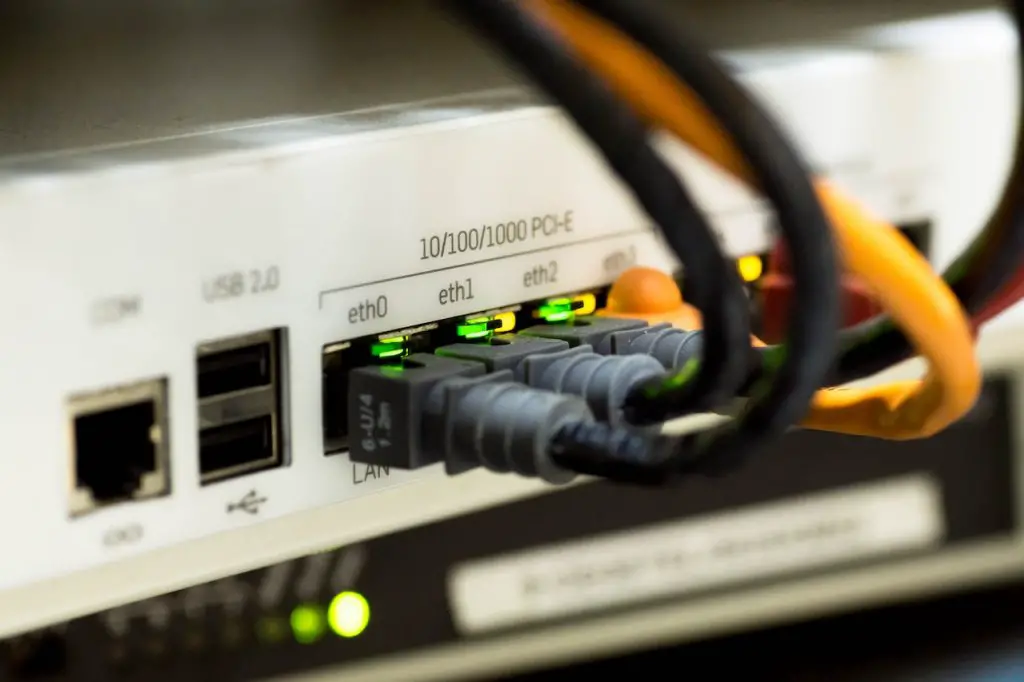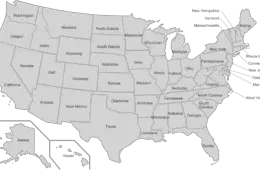Internet is a way of communication and for this purpose, there are different types of internet services. Each service has its own set of rules and regulations. This article will tell you about the main types of internet services, their names, benefits, and many other tips.
The internet has come a long way since its humble beginnings as a tool for government and military communication. Today, it’s an essential part of daily life for billions of people around the world. And it’s not just for surfing the web anymore – the internet is now used for everything from online shopping and banking to streaming video and gaming.
The internet is a great tool that allows people all over the world to communicate and share content via email, social media, blogs, or any other way they do so in this day and age. However, an individual having their own computer, phone or tablet doesn’t make them part of a community unless they take advantage of various types of internet services.
But with so many different types of internet services available, it can be hard to know which one is right for you. In this blog post, we’ll take a look at the different types of internet services available and help you choose the best one for your needs.
What are Internet Services?
Internet services are the means by which you access the internet. Internet services are defined as a set of communication protocols used to connect computers to the internet and exchange data. There are a variety of different types of internet services available, each with its own set of features and benefits.
The most common type of internet service is known as dial-up, which uses a regular telephone line to connect to the internet. Dial-up is the slowest type of internet connection, but it is also the most widely available.
An Internet Service Provider (ISP) provides access to the Internet using telephone lines and/or cable television lines. The ISP then connects customers to the Internet with their own specific connections/transport mechanisms.
What Are the Different Types of Internet Services?

There are a few different types of Internet services that people can use. The most common type is called broadband, which is a high-speed Internet connection that is always on. Another type of Internet service is dial-up, which uses a regular phone line to connect to the Internet. Dial-up is much slower than broadband, but it does not require a separate phone line.
Broadband connections are typically either DSL or cable. DSL uses existing phone lines to deliver high-speed Internet, while cable uses TV lines. Cable is generally faster than DSL, but both are significantly faster than dial-up.
Most people who have broadband at home also have access to Wi-Fi, which allows them to connect wirelessly to the Internet. Wi-Fi hotspots are becoming increasingly common in public places like coffee shops, libraries, and airports.
Different types of network connections are used to access the internet:
Broadband Internet
Broadband Internet is a high-speed Internet connection that uses a digital subscriber line (DSL) or cable modem. Speeds range from 256kbps to 25Mbps or more. This type of connection is usually more expensive than dial-up, but it is also much faster.
Broadband is another type of internet service that is becoming increasingly popular. Broadband connections are much faster than dial-up connections, and they allow users to do more online than ever before. There are two main types of broadband: cable and DSL (digital subscriber line).
One advantage of broadband Internet is the speed, which can be up to 25 times faster than dial-up. This means that you can do things like stream video and music, download files quickly, and participate in online games without any lag. Another advantage is that it does not tie up your phone line, so you can make and receive calls while online.
Cable Internet
Cable Internet uses the same infrastructure as cable television. It is one of the most popular types of home Internet service in the United States. Cable Internet is generally faster than DSL and dial-up, but it can be more expensive.
One advantage of cable Internet is that it does not tie up your phone line, so you can use the Internet and make phone calls at the same time. Cable companies typically offer discounts when you bundle Internet service with TV or phone service.
Cable broadband uses the same cables as your TV to connect you to the internet. Cable broadband speeds can be up to 100Mbps, which is much faster than most dial-up and DSL connections.
Fiber Optic
Fiber optic Internet is the newest type of home Internet service. It uses a network of thin, flexible fibers to deliver high-speed Internet. Fiber optic Internet is much faster than cable and DSL, and it doesn’t tie up your phone line. One disadvantage of fiber optic Internet is that it is not available in all areas. Another disadvantage is that it can be more expensive than other types of Internet service.
Fiber optic broadband is the newest and fastest type of broadband available. Fiber optic cables are made of glass or plastic and can carry data at speeds of up to 1Gbps (1000Mbps). Fiber optic broadband is not yet widely available, but it is slowly being rolled out in select areas across the country.
Satellite Internet
Satellite Internet uses a dish to receive signals from a satellite in space. It is available in many rural areas where other types of Internet service are not. Satellite Internet is usually slower than cable and DSL, but it has come a long way in recent years.
One advantage of satellite Internet is that it does not require a phone line. Another advantage is that it can be installed almost anywhere. One disadvantage of satellite Internet is that it can be expensive. Another disadvantage is that the dish must have a clear view of the sky, so it cannot be installed inside a building.
DSL Internet – Digital Subscriber Line
DSL uses existing phone lines to deliver high-speed Internet, making it a popular choice for many people. One advantage of DSL is that it is widely available. Another advantage is that it is typically cheaper than other types of high-speed Internet, such as cable or fiber. One disadvantage of DSL is that it can be slower than other types of Internet. Another disadvantage is that it requires a phone line, so you cannot use the Internet and make phone calls at the same time.
DSL broadband uses your existing phone line to connect you to the internet. However, unlike dial-up, DSL uses a separate frequency for data so it doesn’t interfere with your phone calls. DSL speeds can range from 1Mbps to 100Mbps depending on the distance from your home to the nearest telephone exchange.
Wireless Internet
Wireless internet, also known as WiFi, is one of the most popular types of internet service. It uses radio waves to connect devices to the internet without the need for wires or cables.
Wireless internet is very convenient as it allows users to connect to the internet anywhere they have a signal. It also eliminates the need for messy cables and makes it easy to connect multiple devices to the internet.
Wireless internet is not without its downsides, however. It can be more expensive than other types of internet service, and the connection can be less reliable.
Dial-up Internet
There are a few different types of Internet service available to the public, the most common being dial-up Internet. Dial-up Internet uses a standard phone line to connect to the Internet, with speeds ranging from 56kbps to 115kbps. This type of connection is usually the cheapest option available, but it is also the slowest.
One advantage of dial-up Internet is that it does not require any special equipment or software, as it uses the same phone line that you would use for your regular phone calls. Another advantage is that it is widely available, as most areas have at least one ISP offering dial-up service.
The main downside of dial-up Internet is the speed, which can be painfully slow compared to other types of Internet connections. Another downside is that it ties up your phone line while you are connected, so you cannot make or receive any phone calls while online.
Cellular Internet
Cellular Internet is a type of wireless Internet technology that uses cell towers to provide high-speed Internet access. It is similar to other wireless technologies such as Wi-Fi, but it has some advantages and disadvantages that make it unique.
One advantage of cellular Internet is that it can be used in areas where there is no wired or Wi-Fi connection available. This means that you can stay connected even when you are in a rural area or traveling. Another advantage is that it is generally more secure than Wi-Fi, as it is more difficult for someone to intercept your data.
The main downside of cellular Internet is the cost, as it can be more expensive than other types of Internet connections. Another downside is that the speed can vary depending on the strength of the signal and the number of people using the same cell tower.
ISDN – Integrated Services Digital Network
ISDN is a type of digital phone service that allows for the transmission of data over regular phone lines. It is much faster than traditional dial-up service and can be used for things like video conferencing and high-speed Internet access.
One advantage of ISDN is that it offers speeds of up to 128kbps, which is much faster than most dial-up connections. Another advantage is that it can be used for both voice and data transmissions, so you can make phone calls and use the Internet at the same time.
The main downside of ISDN is the cost, as it can be more expensive than other types of Internet connections. Another downside is that it is not available in all areas, so you may not be able to get service if you live in a rural area.
What is the best type of internet connection?
There are many different types of internet service available, and choosing the best one depends on a number of factors. The most important factor is probably the speed of the connection. If you are simply browsing the web or checking email, a slower connection may be adequate. However, if you plan to download large files or stream video, you will need a much faster connection.
Another important factor to consider is the price. Some internet providers offer discounts for bundled services, so it may be cheaper to get your internet service from the same company that provides your cable TV or phone service. However, there are also many low-cost internet providers that offer standalone services.
Reliability is another key consideration. If you live in an area with spotty coverage, you may need to choose an internet provider that has a strong network and can provide consistent service.
Finally, it is worth considering customer service when choosing an internet provider. Some companies are known for their excellent customer support, while others can be difficult to reach or slow to respond to problems. Reading online reviews can give you some insight into a company’s customer service quality.
FAQs
What is the most common type of internet connection?
The most common type of internet connection is a broadband connection. This is a high-speed internet connection that is always on and typically provides speeds of up to 25 Mbps. A broadband connection is typically provided by your local cable or phone company.
If you live in a rural area, you may not have access to a broadband connection and will instead have to rely on a dial-up connection. Dial-up connections are much slower than broadband connections and require the use of a telephone line.
Which are the 4 Types of Internet Connection?
There are four main types of internet connections: dial-up, DSL, cable, and fiber optic.
Dial-up is the slowest type of internet connection. It uses a telephone line to connect to the internet and can typically only reach speeds of around 56 kbps.
DSL (Digital Subscriber Line) is a type of internet connection that uses a phone line but can reach much higher speeds than dial-up. It is a more affordable option than cable or fiber optics and is available in most areas. However, the speed can vary depending on how far you are from the provider’s equipment.
Cable is one of the most common types of internet connection. It uses a cable TV line to connect to the internet and can reach speeds of up to 100 Mbps. Cable is widely available but can be more expensive than other options.
Fiber optic is the fastest type of internet connection available. It uses thin glass fibers to send data and can reach speeds of up to 1 Gbps. Fiber optic lines are not available in all areas but are gradually becoming more common.
What Type of Internet Do You Have at Home?
DSL Internet – Digital Subscriber Line is best for Home
Digital Subscriber Line (DSL) is a type of internet connection that uses a phone line but can reach much higher speeds than dial-up. It is a more affordable option than cable or fiber optics and is available in most areas. However, the speed can vary depending on how far you are from the provider’s equipment.
DSL is a great option for those who need a fast internet connection but don’t want to spend a lot of money. It’s also a good option for those who live in rural areas where other types of internet connections are not available.
Where Does My Internet Access Come From?
The answer to the question of where your internet access comes from is not always as simple as it might seem at first. In many cases, your internet access may come from more than one source.
For example, if you have a cable modem at home, your internet service may be provided by your cable company. However, the actual connection to the internet may be provided by your local phone company or a third-party provider.
In other cases, you may have a direct connection to the internet through a service provider such as Verizon FiOS or AT&T U-verse. In these cases, your service is provided directly by the company and there is no need for a second provider.
There are also a number of mobile broadband options available that allow you to connect to the internet using a cellular data network. These services are typically provided by major cell phone carriers such as AT&T, Verizon, Sprint, and T-Mobile.
Finally, there are a number of public Wi-Fi hotspots available in many cities and towns that provide free or low-cost access to the internet. These hotspots are usually located in coffee shops, libraries, and other public places.
Why did you need to know what internet connection type you have?
There are a number of reasons why you might need to know what type of internet connection you have. For example, if you are having trouble connecting to the internet, knowing your connection type can help you troubleshoot the problem.
In some cases, the type of internet connection you have can also affect the speed of your connection. For example, dial-up connections are typically much slower than DSL or cable connections.
Knowing your internet connection type can also be helpful when shopping for new service or upgrading your current service. For example, if you know you have a fiber optic connection, you will know to look for providers that offer fiber optic service in your area.
Finally, understanding your internet connection type can help you make informed decisions about how to use your internet service. For example, if you have a data cap on your cellular data plan, you might want to use a Wi-Fi hotspot whenever possible to avoid exceeding your data limit.
Perfection
The internet is a vast place, full of different opportunities and potential pitfalls. Make sure you know as much as possible before diving in. Keep this guide handy when you need to decide between a given service, and remember: it’s always better to be safe than sorry.
We didn’t try to cover the entire world of Internet services, but these are some of the most popular and widely used categories. We also skipped over non-web services (such as email) since there are already resources available on that topic.
Hopefully, this list has helped you familiarize yourself with the various types of Internet services out there—whether you’re a first-time user or an old hand at this stuff.
– Decision Making Article


